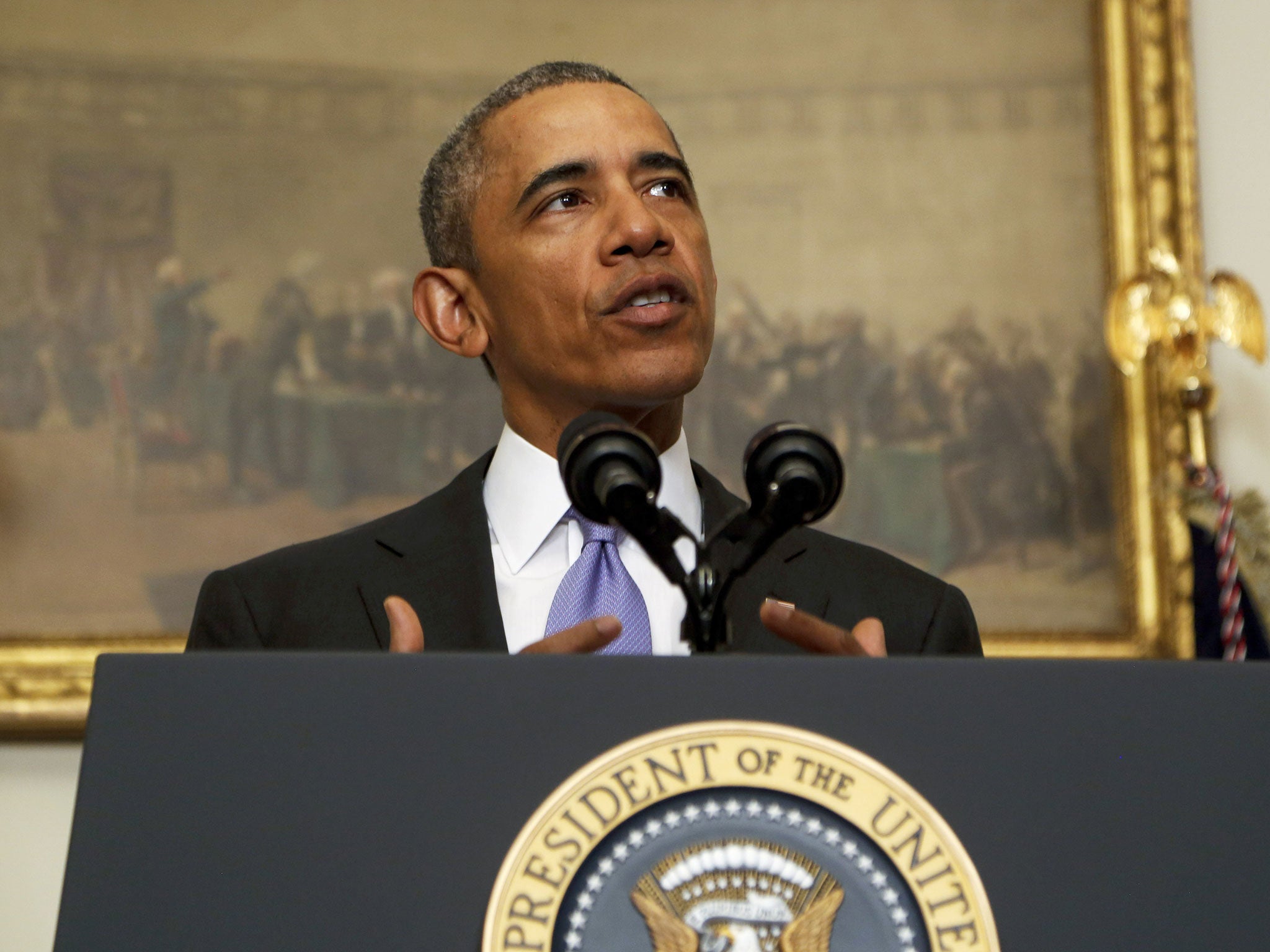US imposes fresh sanctions against Iran over ballistic missile programme
'Iran's ballistic missile program poses a significant threat to regional and global security'

Your support helps us to tell the story
From reproductive rights to climate change to Big Tech, The Independent is on the ground when the story is developing. Whether it's investigating the financials of Elon Musk's pro-Trump PAC or producing our latest documentary, 'The A Word', which shines a light on the American women fighting for reproductive rights, we know how important it is to parse out the facts from the messaging.
At such a critical moment in US history, we need reporters on the ground. Your donation allows us to keep sending journalists to speak to both sides of the story.
The Independent is trusted by Americans across the entire political spectrum. And unlike many other quality news outlets, we choose not to lock Americans out of our reporting and analysis with paywalls. We believe quality journalism should be available to everyone, paid for by those who can afford it.
Your support makes all the difference.The US has imposed new sanctions on 11 companies and individuals it says are linked to the Islamic Republic's ballistic missile programme.
The Treasury Department confirmed the development less than 24 hours after international nuclear sanctions were lifted in a move Barack Obama insisted meant Tehran could no longer get its hands on a nuclear bomb.
The new sanctions come after the Obama administration delayed the action for more than two weeks during tense negotiations to free five American prisoners, according to people familiar with the matter.
"Iran's ballistic missile program poses a significant threat to regional and global security, and it will continue to be subject to international sanctions," acting Under Secretary for Terrorism and Financial Intelligence Adam Szubin said.
The annoucement came shortly before a televised address by the US President in which he admitted a recent episode in which US sailors strayed into Iranian territorial waters could have sparked an "international incident".
He also admitted that the US sailors, who were released promptly by Iran after the incursion, had “accidentally strayed into Iranian waters”.
But he said recent closer diplomacy between the two powers had borne fruit and that a crisis had been averted.
Mr Obama said Iran would not get its hands on a nuclear weapon and had now met key milestones as part of its nuclear deal.
Other diplomatic deals, including the unfreezing of Iranian fund and the exchange of prisoners were a result of closer relations between the two countries, he added.
“Iran will not get its hands on a nuclear bomb. The region, the United States, and the world, will be more secure,” he said in a statement delivered at the White House.
“Engaging directly with the Iranian government on a sustained basis for the first time in decades has created a unique opportunity, a window, to resolve important issues.”
Mr Obama said that Iran had “fulfilled key commitments” under last year’s nuclear deal, including filling in a plutonium reactor with concrete, removing two thirds of its uranium enrichment machines, and ditching large parts of its enriched Uranium stockpile.
The US president added that the country was subject to the strictest checks on its civilian nuclear programme ever negotiated in a deal.
He also warned that the US still denounced Iran on some aspects of its foreign policy: including alleged funding for militant groups in Syria and antagonisms between unspecified US allies in the Persian Gulf.
Iran’s policy towards Israel was also a source of criticism from America, he added.
Mr Obama was speaking after the announcement that four American prisoners in Iran would be released as part of a deal. He also confirmed the US was provide clemency to six Iranian-Americans held by US authorities.
Among the Americans release by Iranian authorities was Washington Post reporter Jason Rezaian.
That development comes after the lifting of sanctions on Iran that were imposed on account of its nuclear programme.
Other sanctions are still in effect against the country, however – including a newly imposed set against 11 Iranian companies and individuals on account of a recent ballistic missile test.
Iran's president Hassan Rouhani has moved the Islamic Republic closer to the West in foreign policy terms since his election in 2013. He has also pledged to introduce domestic reforms and improve civil rights.
Join our commenting forum
Join thought-provoking conversations, follow other Independent readers and see their replies
Comments